Why Emilia Clarke’s Daenerys turning evil in Game of Thrones was a matter of ‘when’ and not ‘if’
The final season of HBO’s popular series courted much criticism, with fans claiming that Daenerys Targaryen’s eventual turn as the ‘Mad Queen’ was rushed and went against eight seasons of character development.
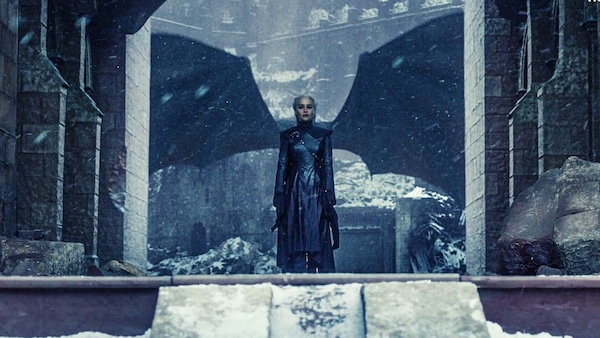
Last Updated: 03.51 PM, Nov 02, 2021
Creators of the show were always going to be in a precarious position come the end of Game of Thrones - people were either going to love it or hate it. Unfortunately, most ended up hating it with a passion. The purists were put off by the lack of intricate dialogues and riveting screenplay as compared to the first five to six seasons, whereas the relatively newer fans were put off by the ending, and of course, there were several others that joined in on the hate being spewed online because it appeared to be the fashionable thing to do. The most common criticism the show faced was with regards to how Emilia Clarke’s Daenerys Targaryen ‘snapped’ in the penultimate episode, titled Bells, and burned down King’s Landing, the capital city of Westeros, along with all of its civilians - man, woman, and child.
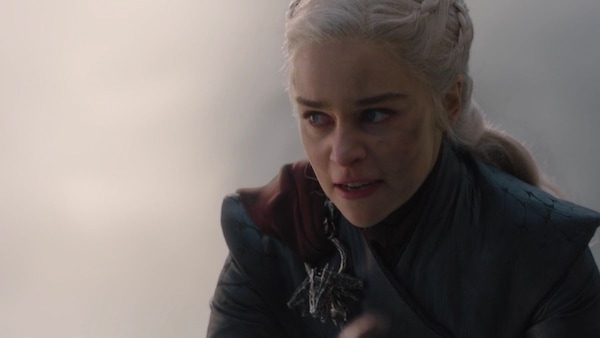
So this begs the question, was her transition from being the well respected “Daenerys Stormborn of the House Targaryen, First of Her Name, the Unburnt, Queen of the Andals and the First Men, Khaleesi of the Great Grass Sea, Breaker of Chains, and Mother of Dragons”, to simply the ‘Mad Queen’, poorly written? For a show that was constantly praised for its writing and character development, being criticised for this was surprising. To be fair, there are certain criticisms that can be levelled at the finale - it was too short, the ‘Battle of Winterfell’ could’ve been better executed, and Jon Snow’s suicide mission beyond The Wall could be construed as a bit over the top. However, with regards to Danaerys and her eventual turn, it was perfectly executed, and there are some very obvious hints from the very first season.
To understand how and why she would emulate her father, King Aerys II Targaryen - the ‘Mad King’, one must delve a little deeper into her life and circumstances surrounding her upbringing while on the run from King Robert Baratheon’s assassins. It helps bring about a deeper understanding of her psyche and her moral compass. For instance, from a very young age, the one thing that is constantly drilled into her head is how the Targaryen bloodline is superior to everyone else and how they are destined to rule. This is eerily similar to Adolf Hitler’s idea of the Third Reich - people with blonde hair and blue eyes coupled with their idea of the ‘Aryan’ super race. George RR Martin, the author of the original Game of Thrones novels titled A Song of Ice and Fire, has used the Targaryens as a metaphor for the self-proclaimed Aryan race, or similar neo-Nazis.
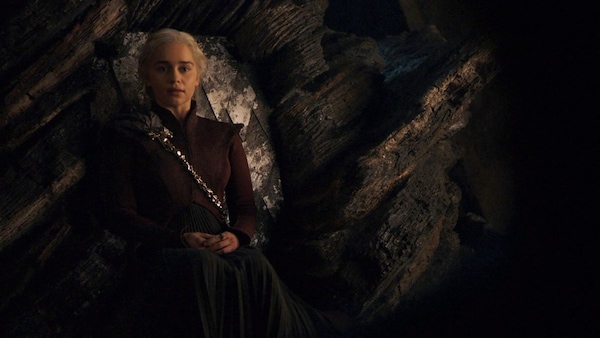
In other words, Danareys or Dany is the medieval fantasy version of a neo-Nazi populist leader. But for Dany, she has absolute conviction that her purpose is to create a better world and that her quest for power is her ‘birthright’ - a word she likes to remind everyone of. In contemporary politics of an ideal society, such traits in a leader would ring alarm bells, especially when they are backed by the populous and powerful individuals. But unfortunately, these aren’t the only traits that make her a volatile leader. If one were to look at her upbringing, it would paint a very distinct picture of her mental makeup: a traumatised childhood without a family, except for her psychotic brother Viserys, who sells her to a barbaric tribal warlord named Khal Drogo, who ends up raping her. She then falls in love with her abuser, in what could only be described only as something akin to Stockholm syndrome. She then loses both her unborn child and Khal Drogo in a single night.
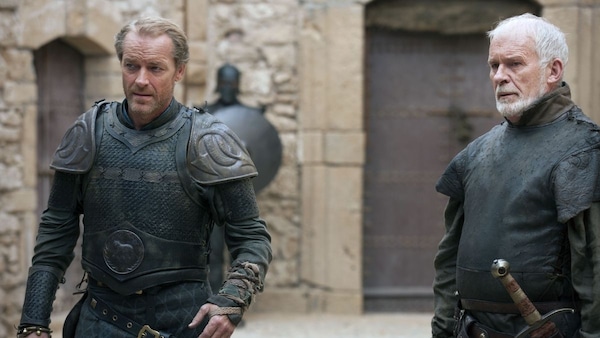
For a normal human being, such trauma would have shattered their mental faculties and spirit beyond repair. But her character is written in a manner that convinces us that she is not any ordinary person. She is the ‘unburnt’, she is the ‘breaker of chains’, the mother of Dragons. This convinces both readers and viewers that she has been chosen by an omniscient power to lead the people, ignoring the very obvious cues littered across the entire story that indicated she is just as vulnerable as anyone else. In fact, her instincts have always been to burn everything to the ground despite preaching love and compassion.
Her darkest instincts were always kept in check by her level-headed advisors, be it Ser Barristan Selmy, Tyrion Lannister, or Ser Jorah Mormont. But even they couldn’t stop her from torturing and killing the Masters at Slaver’s Bay. She killed everyone regardless of whether they were guilty or innocent. She executed them, without offering a just trial, and some, for being guilty by association. Of course, the viewers didn’t bat an eye because the Masters were slave traders after all. An argument a viewer would make to justify this would be by pointing out the atrocities the Masters had committed over generations.
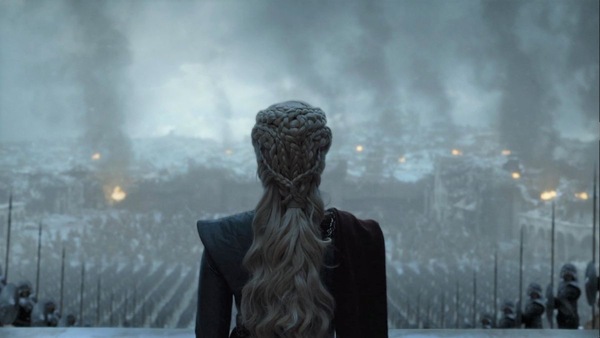
In the final season, her flaws become more evident. In the space of a few months, she loses the trust of Tyrion, her Hand, while both her loyal friends, Ser Jorah and Missandei are killed, as well as two of her dragons, Viserion and Rhaegal - whom she considered her children. Her attack on King's Landing in the aftermath, to reclaim the throne from Cersei Lannister, was a move filled with rage; and the ‘bell toll’ which sets her off on a rampage was merely a trigger for Dany’s PTSD (Post Traumatic Stress Disorder). The massacre that followed, killing men, women, and children, was always merely a matter of time. It is symbolic to the many power-hungry populist leaders who sell dreams of a Utopia to the masses, only to implode because of their own lust for power.
Daenerys was always the true villain of the show, one that even supersedes Cersei Lannister. Cersei was simply self-aware of her evil side, but for Dany, she always positioned herself as the heroine, disillusioned by her own power. As Matthew McConaughey’s Jake Brigance said in John Grisham’s film adaptation of A Time to Kill, “Ain't nothing more dangerous than a fool with a cause”.

